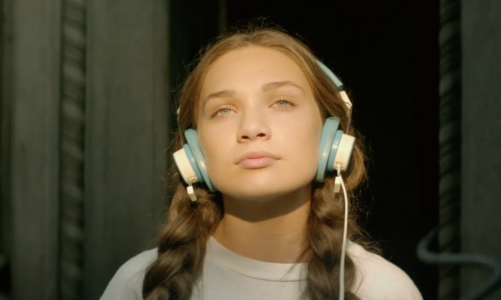Twitter users sprang to action almost immediately after the announcement of singer Ariana Grande’s split from her husband Dalton Gomez. TMZ reported that the reason for the split was the inability of one partner to cope with the fame of the other—Gomez was “taken back by Ariana’s celebrity”—a similar reason for actor Joe Alwyn’s split from Taylor Swift back in March. As a result, a Taylor Swift fan account tweeted a joke about the similarities between the break-ups, writing that “Joe Alwyn and Dalton Gomez are officially dating, People reports. Joe reportedly met Dalton’s required level of fame: unknown. The two met at a support group for men who ‘fumbled the bag’”.
Anyone who has a basic understanding of the way misinformation spreads can recognize that this tweet is not true. Even disregarding the obvious outlandishness of the tweet, the tweet can easily be proved untrue as the twitter user is not a verified source of news, and a quick google search shows that People never reported or confirmed this news. However, social media users across several platforms were unable to recognize the difference between news and a made up tweet. Under one TikTok featuring a screenshot of the tweet, commenters asked questions such as: “are they dating each other?”, “is this real?”, and “I need to know if this was real.”
This is a grave indicator of the state of media literacy education in today’s increasingly digital world. A 2022 survey conducted by Media Literacy Now and the Reboot Foundation indicated that “only 42% of respondents reported learning to analyze science news in high school” and “only 38% of respondents reported learning how to analyze media messaging”. This is an alarming number, which reflects an inability of many adults to carefully reflect upon, analyze, and come to reasonable conclusions about the media they digest on a daily basis. The tweet about Gomez and Alwyn was a joke, and was intended to be perceived and treated as such. If such a tweet convinces people that Dalton Gomez and Joe Alwyn are dating, how confident should we be about peoples’ ability to accurately dissect modern media without taking everything they watch, read, and listen to at face value?
There are two ways in which media literacy skills present inadequately amongst social media users who comment on film, literature, or other art. The first is the idea that anything an artist creates or puts out is an immediate reflection of their life and memories. Take, for example, singer-songwriter Noah Kahan, who recently released a song called “Dial Drunk”. In this song, Kahan tells the story of an angry alcoholic who, once jailed, is not able to reach a former lover on the phone. This song is obviously fiction. Music, like any other form of fictional art, is not a reflection of the artist’s personal life (for example, just because Stevie Nicks sang on Rhiannon it doesn’t mean she or anybody she knew was Rhiannon. In fact, Rhiannon was based on a fictional witch). However, social media users were quick to slam Kahan as a villain, believing that the song was autobiographical and depicted a real moment in Kahan’s life. In response, Kahan tweeted “I do just want to emphasize that not every song I make is directly about my life experience” and the lyrics were not meant to promote the behavior of the song’s narrator. Oftentimes, artists release statements or do interviews where they describe the meaning of their work, and a simple online search can avoid pointless social media discourse about an artist’s intentions. Fiction can be dangerous, but not in this scenario.
However, the second form of media literacy inadequacy comes into play when fiction is dangerous and people sneer at critiquers by claiming that they lack media literacy skills. An artist’s work, unless explicitly stated as memoir or biography, should not be taken as that artist’s true life story. But what happens when an artist creates something that, while fictional, contains themes of racism, misogyny or other harmful ideologies? For example, take the beloved sitcom “It’s Always Sunny in Philadelphia”, whose pilot episode contains a multitude of offensive jokes and themes that would not stand on television today. While they might still enjoy the show, viewers have a right to be upset, as the content presented perpetuates harmful ideologies. But, when those viewers express those views, they’re met with a barrage of invalidation. For example, one twitter user claimed that viewers should not be offended because “when the episode is called “the gang gets racist” and it aired in like 2005 u gotta sort of mentally prepare urself to see and hear some crappy outdated 00s racial jokes”.
The idea that people should not be offended by harmful jokes or ideologies in art because they should expect such behavior is the equivalent of telling them to shut up and take the media as it is without challenging it, a dangerous thought process that prevents progress and growth in media. This in itself is a form of media literacy inadequacy—there is a difference between giving a piece of media a critique and claiming that anybody who has ever consumed or enjoyed that piece of media is a villain. Many fail to understand that difference. When something becomes a buzzword, such as media literacy, influencer or gaslighting, people tend to throw it around without understanding what exactly it means. Those who call a lack of media literacy skills on people who give valid critique to aspects of art are part of that group, and they lack media literacy skills themselves.
Art criticism is not a lack of media literacy, it is a full time job for many, and people should be encouraged to provide criticism to a piece of work providing that that criticism is warranted. It is possible for art to have dark themes without the artist having dark morals, in which case we must think critically about what exactly we are critiquing and why we choose to critique it. It is also possible for art to have dangerous and harmful themes without the intention of the artist, in which case criticism is oftentimes necessary, and should not be called a lack of media literacy. Unfortunately, the meaning of the term media literacy is losing its value and should be used carefully and sparingly in instances that require it.




